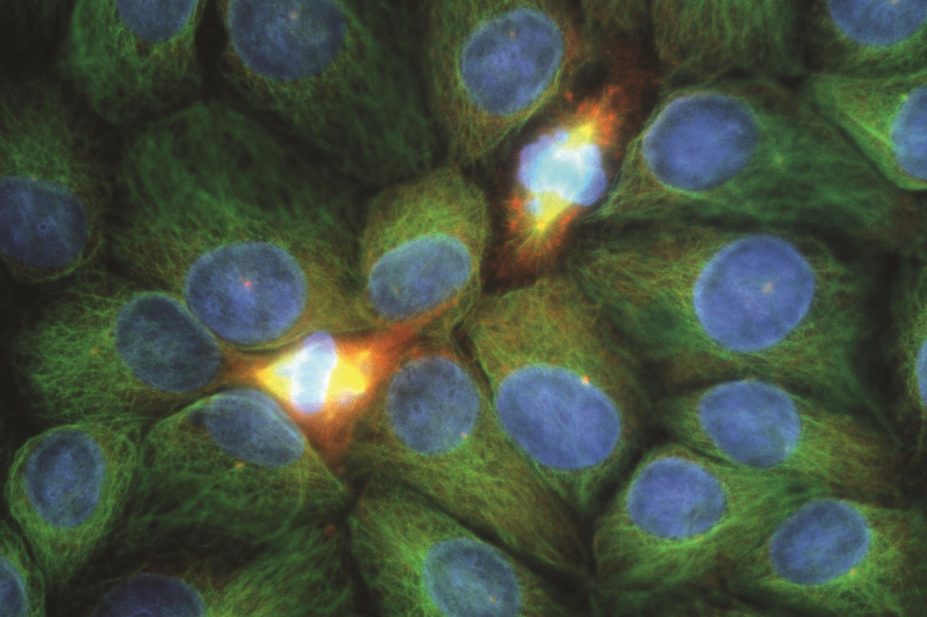
Nancy Kedersha / Science Photo Library
The cellular protein focal adhesion kinase (FAK) plays a role in cell-signalling pathways in cancer, promoting disease progression. But its precise effects within the nucleus have remained unclear.
Researchers at the University of Edinburgh, Scotland, have now shown that nuclear FAK has a major role in making tumours resistant to immune-system attacks. They found that FAK promotes recruitment of tumour-associated regulatory T cells (Tregs). Tregs, in turn, inhibit the activity of cytotoxic CD8+ T cells, allowing tumour growth.
The researchers, writing in Cell (online, 24 September 2015)[1]
, showed that treating mice with squamous cell carcinoma with a small-molecule FAK-inhibitor currently in clinical trials, called VS-4718, lead to immune-mediated tumour regression. They suggest future studies should therefore combine the use of FAK inhibitors with agents that stimulate CD8+ T cell activity.
References
[1] Serrels A, Lund T, Serrels B et al. Nuclear FAK controls chemokine transcription, Tregs, and evasion of anti-tumor immunity. Cell 2015;163:160–173. doi.org/10.1016/j.cell.2015.09.001


